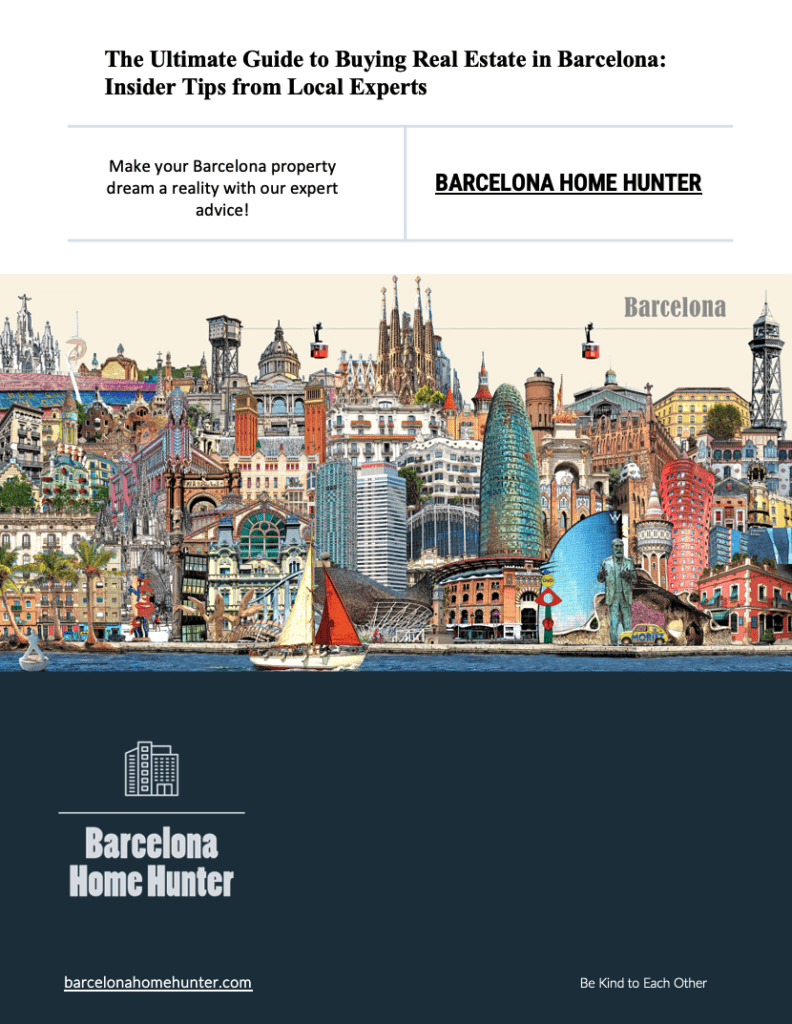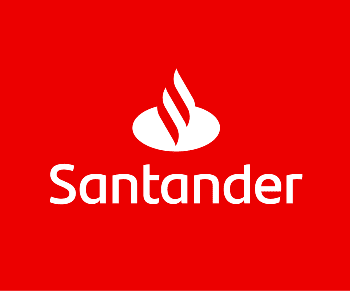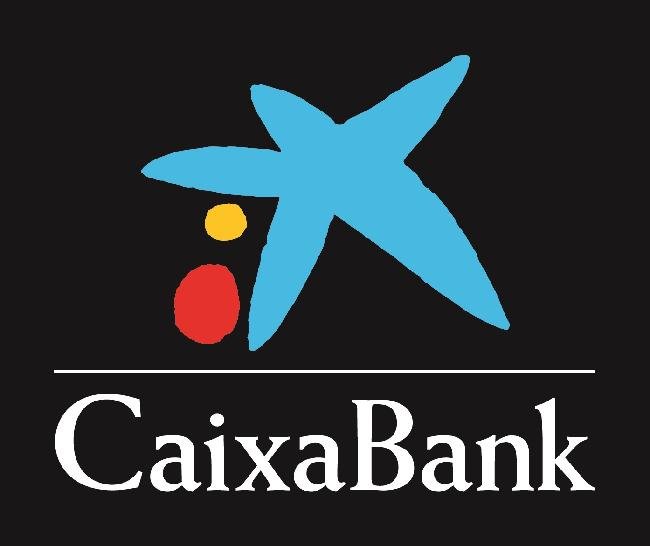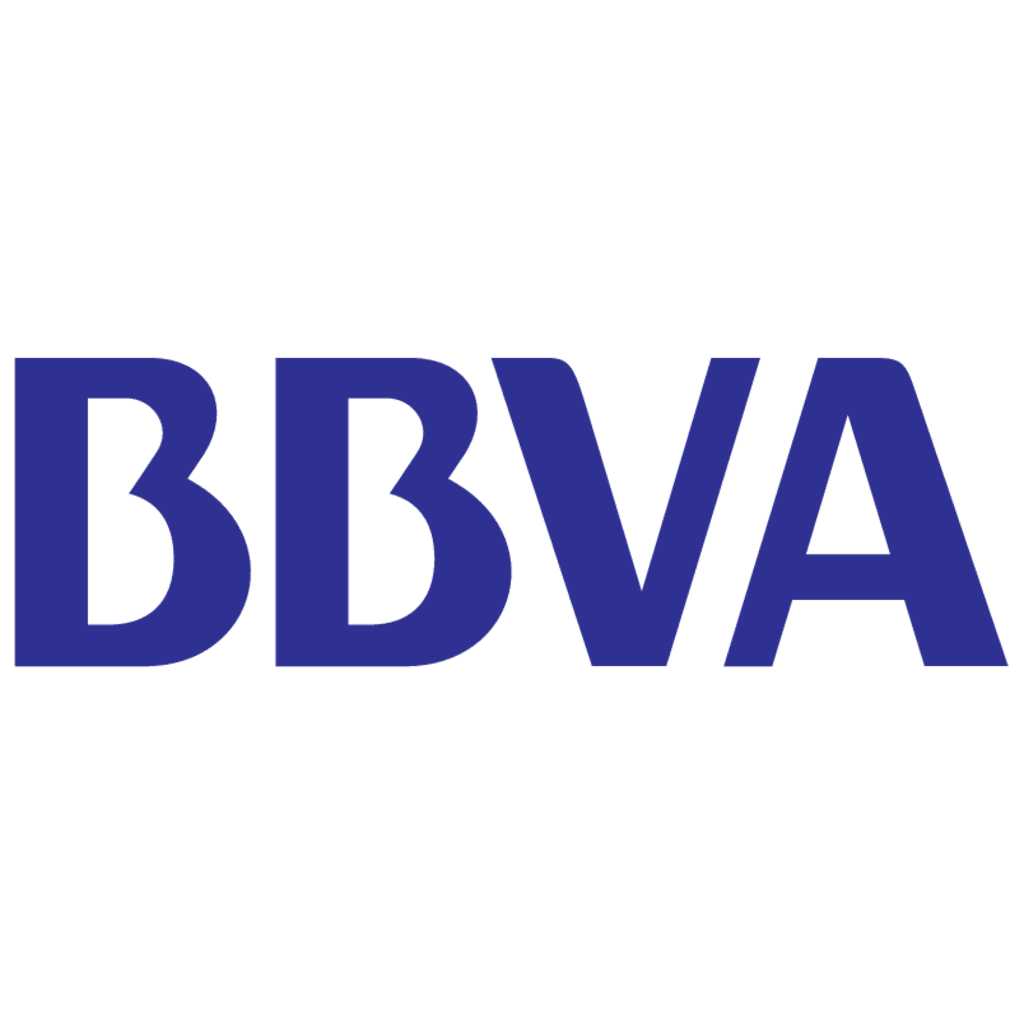
Add Your Heading Text Here
8 Steps to buying a property in Barcelona
These are the very basic facts you should know when buying a property in Barcelona. For a more comprehensive guide download our 80 page “The Ultimate Guide to Buying Property in Barcelona .
1. Can foreigners buy property in Barcelona?
Absolutely Yes, foreigners can buy property in Barcelona.
NIE Number: You’ll need a NIE number, which costs €10, obtainable through agencies like Barcelona Home Hunter.
Tax Obligations:
- Annual Returns: Even if you’re not a Spanish tax resident, you must file annual tax returns.
- Taxes to Pay: These include income tax on rental income, imputed income tax if the property is vacant, wealth tax (if applicable), and the annual Spanish property tax.
Property Taxes:
- IBI: The property tax is 0.66% of the property’s rateable value in Barcelona.
Income & Imputed Income Tax:
- Income Tax on Rent (24%): When you earn rental income from your property in Barcelona, you’re required to pay income tax on that rental income. For non-EU foreigners, this tax rate is typically set at 24% of the rental income received. For example, if your rental income for the year is €10,000, you would owe €2,400 in income tax.
- Imputed Income Tax (Around 24% of 1.1% to 2% of Rateable Value): (only for vacant property) Imputed income tax is a tax that is applied even if you don’t actually receive rental income but own a property. It’s based on the assumption that you could be earning income from the property, even if you’re not renting it out. This tax is calculated as a percentage of the property’s rateable value, which typically ranges from 1.1% to 2%. So, for instance, if your property’s rateable value is €200,000, and the imputed income tax rate is 24% of 1.5% (the midpoint of the range), then you would owe €720 in imputed income tax for the year.
Residency: You’re considered a Spanish tax resident if you spend more than 183 days in a calendar year in Spain, typically evidenced by utility bills.
Banco Santander
2. Simulador de hipoteca. Calcular cuota de hipoteca - Banco Santander
In English
CaixaBank
3. HolaBank | Simulador hipotecas | CaixaBank
In English
BBVA
1. Mortgage Simulator - Mortgage Payment Calculator | BBVA
In English
2. Can Foreigners get a Mortgage?
Yes, but…
- Shorter Repayment Terms: Non-residents are typically offered a maximum repayment term of 20 years.
- Lower Loan-to-Value: Non-residents can borrow up to 70% of a property’s purchase price.
- Limited Options: Non-residents often have fewer mortgage options, usually fixed-rate mortgages.
If you are considering a mortgage in Spain, be prepared for the process. Seek banks that accommodate your needs, by offering English support, reasonable terms, and not requiring additional banking products. We work with English speaking bank managers, so ask if you need help. Also, ensure you have proof of income. Also keep in mind that banks don’t always give you their best offer right away. Shop around.
3. What are the costs of buying a property in Barcelona?
When considering buying a property in Barcelona, understanding the associated costs is crucial, whether you plan to pay in cash or secure a mortgage.
Immediate Costs:
- Property Transfer Tax (Impuesto sobre Transmisiones Patrimoniales): 10% of the property’s purchase price for re-sell propertirs in Barcelona.
- Public Notary: Fees range from €500 to €2,000 for finalizing the property deed before a notary.
- Property Registration: Around €550 to register as the new owner with the local property register.
- Specialist Services: Hiring a specialist or agency for property tax payment and registration can cost €100 or more.
Long-Term Expenses:
- Annual Property Tax (IBI): Varies based on property value.
- Community Fees: Maintenance fees for shared facilities, such as elevators or cleaning, averaging €1,200 to €2,500 per year.
Additional Insights:
- Property Prices: Average property prices in Barcelona vary, with flats being the most common type on the market. Larger properties and those with amenities like parking tend to have higher average prices per square meter.
- Cash vs. Mortgage: If paying cash, budget an additional 12% to 15% of the purchase price. For mortgages, non-residents need to budget 41% to 45%. (30% not covered by the mortgage + closing costs and tax)
4. How long does it take to close on a property in Barcelona?
The timeline for buying a property in Barcelona typically ranges from three to six months. Here’s what to expect:”
- Initial Steps: If you’re unfamiliar with the process, it may take some time to understand how to buy a house in Barcelona. Securing a mortgage alone can take up to 30 days, and shopping around for the right mortgage can extend this timeframe if you’re not using a mortgage broker. The fastest I have seen was 4 weeks.
- Property Search: Finding the right property may also take weeks, as you search for a house that meets your criteria.
- Engage Professionals: Partner with a reputable real estate agency like Barcelona Home Hunter. They can provide access to properties not yet on the market and help expedite your search based on your specific requirements.
- Legal Assistance: Contracting a legal firm specializing in real estate law to oversee the purchase process. They will identify any issues that may delay the process later on, such as outstanding debts on the property or documentation issues.
- Reservation Contract: A real estate agency will assist in drafting a reservation contract, which, if agreed upon, will immediately remove the property from the market.
5. What is the best neighborhood to buy a property in?
The best neighborhood to buy a property in Barcelona depends on your lifestyle preferences, budget, and investment goals. Here are some popular options:
- Eixample: Known for its modernist architecture, grid layout, and central location, Eixample is ideal for those seeking a blend of historic charm and contemporary amenities. It’s a favorite among professionals and families due to its proximity to shops, restaurants, and public transportation.
- Gràcia: This bohemian neighborhood offers a village-like atmosphere with narrow streets, independent boutiques, and vibrant plazas. Gràcia is perfect for those who appreciate a tight-knit community feel and a more laid-back lifestyle.
- Ciutat Vella: For those who love history and culture, Ciutat Vella (the Old Town) is rich in historical landmarks and lively streets. This area includes the Gothic Quarter, El Raval, and El Born, each with its own unique character. It’s a prime choice for investors looking for rental properties due to its tourist appeal.
- Sarrià-Sant Gervasi: This upscale residential area is known for its spacious properties, green spaces, and excellent schools. It’s ideal for families seeking a quieter, more suburban lifestyle while still being close to the city center.
- Poblenou: An emerging tech and innovation hub, Poblenou offers a mix of modern developments and industrial charm. It’s perfect for young professionals and investors looking for growth potential in a rapidly developing area.
- Les Corts: Home to the famous Camp Nou stadium, Les Corts is a well-established neighborhood with a mix of residential and commercial areas. It’s a great choice for sports enthusiasts and those seeking a balance between urban and suburban living.
- Sants-Montjuïc: This diverse area offers everything from historic sites to modern amenities. With its cultural attractions, parks, and excellent transport links, Sants-Montjuïc appeals to a wide range of buyers.
Ultimately, the best neighborhood for you will depend on your specific needs and preferences. Consider factors such as proximity to work, schools, and recreational activities, as well as the overall vibe and community of the neighborhood.
6. Documents the Seller Should Provide When Selling Property in Barcelona
When signing a transfer deed on a property in Barcelona, a public notary requires specific documents from the seller. As a buyer, requesting these documents in advance can prevent major issues and unforeseen costs, streamlining the buying process. Here are the essential documents to ask for:
- Nota Simple: This document identifies the property owner and discloses any charges or debts, including mortgages, on the property.
- Energy Performance Certificate: Required for any property transfer or rental agreement in the EU since 2013, this certificate indicates the property’s energy efficiency, helping you understand its insulation and energy consumption.
- Cédula de Habitabilidad: The certificate of habitation, required after construction or major renovations, confirms that the property meets legal habitation requirements and is valid for 15 years.
- Inspección Técnica del Edificio: This technical inspection certificate, valid for at least 45 years in Catalonia, is crucial for older buildings. It ensures that the building has passed inspection and identifies any significant repairs needed.
- Recibo del Último Impuesto sobre Bienes Inmuebles: The last receipt for the annual property tax payment ensures that the previous owner is up to date with taxes and helps you anticipate future payments.
- Floor Plans: Although not essential for signing the transfer deed, floor plans help visualize the property’s layout and aid in planning furniture and living spaces.
Using the services of a real estate agent can ensure these checks are carried out efficiently. These professionals can smooth the buying process and provide confidence in your purchase decision.
Additionally, consider hiring a property inspection for an independent property valuation. This can help you make a strong offer and justify your price.
7. How to find a property in Barcelona
Looking for a property in Barcelona often starts with major online property portals:
- Idealista
- Fotocasa
- Kyero
- ThinkSpain
- Habitaclia
As of now, Idealista alone lists around 17,000 houses and flats for sale. While these portals provide a good overview of the market, they don’t always ensure a smooth buying process. Here’s why:
- High Competition: You’re competing with hundreds of thousands of other users, making it challenging to secure the best properties.
- Lack of Transparency: It’s not always clear if a professional real estate agency is behind a listing, leaving you to navigate potential issues and determine market value on your own.
To enhance your property search, consider partnering with a specialist real estate agency like Barcelona Home Hunter. Here’s how we can help:
- Exclusive Access: By sharing your specific requirements—such as location, budget, and desired features—we can reach out to exclusive sellers before their properties hit the online market.
- Personalized Service: We offer tailored assistance, guiding you through every step of the buying process and addressing any potential issues early on.
Starting a relationship with a trusted real estate agency ensures a more streamlined and effective property search in Barcelona.
8. The Process of Buying a Property in Barcelona
- Contrato de Arras (Reservation Contract): “Good Faith Deposit”
Once you find a property in Barcelona that you want to buy, make a formal offer through a reserva contract. This contract outlines your ideal purchase price and all the conditions of sale. Important points to note:
- You pay around 1% of the total purchase price.
- If you back out or don’t meet the conditions, you lose this deposit.
- If the seller backs out, they typically pay you double your reservation deposit.
- Have a real estate professional or legal advisor draft this document to ensure accuracy.
- While not essential, this contract can speed up the process and take the property off the market immediately.
- Meet the Conditions in the Contrato de Arras:
After the seller agrees to your terms and purchase price, prepare everything needed for the final sale:
- Secure a mortgage or ready your capital to pay in cash.
- Review and finalize any necessary property documents.
- Note that the seller cannot back out without facing a penalty if the reservation contract includes a penalty clause.
- Sign the Contrato de Compraventa Before a Public Notary:
The final step involves meeting the seller before a public notary to sign the transfer deed:
- Pay the agreed sale price or have your bank issue a cheque to the seller.
- Liquidate any taxes owed.
- Once signed, the property keys are yours.
- Register the Property:
Register yourself as the new owner at the local property register (registro de la propiedad). The lawyer normally takes care of it for you.


